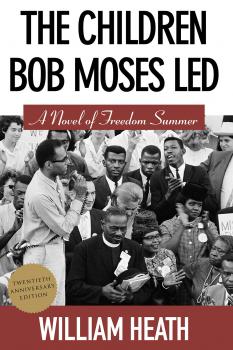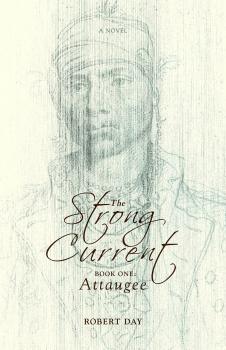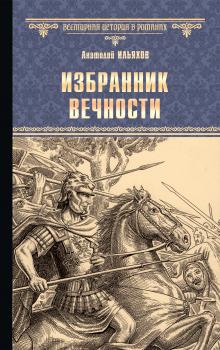ТОП просматриваемых книг сайта:
Историческая литература
Различные книги в жанре Историческая литература, доступные для чтения и скачиванияАннотация
Winner of the Hackney Literary Award and selected in 2002 by Time as one of the eleven best novels on the African American experience, The Children Bob Moses Led is a compelling, powerful chronicle of the events of Freedom Summer. The novel is narrated in alternating sections by Tom Morton, a white college student who joined the Student Nonviolent Coordinating Committee for the summer, and Bob Moses, the charismatic leader of the Mississippi Summer Project. With clarity and honesty, Heath’s novel recalls the bittersweet spirit of the 1960s and conveys the hopeful idealism of the young students as they begin to understand both the harsh reality faced by those they try to help and the enormity of the oppression they must overcome.
Аннотация
Pale Blue Light is a rare espionage thriller set in the Civil War. Young Rabe Canon leaves his family's Alabama plantation at the start of the Civil War, befriending Major Thomas Jackson of Virginia Military Institute – later the esteemed Stonewall Jackson. When Jackson suffers a mortal wound at the Battle of Chancellorsville, Canon suspects foul play. Canon undertakes a cross-country journey to discover the truth behind Jackson's death, one that entangles Canon with a beautiful Yankee spy as he tries to avoid capture in gold-rich California. Author Skip Tucker combines historical accuracy with plenty of gunfire and intrigue for an epic, entertaining novel.
Аннотация
Otci, a rising youth in the village of Attaugee in the great Muskogee nation, knew the rites of initiation to warriorhood and manhood would demand the best of mind, body and spirit. But what he didn’t know was how quickly the tensions mounting in the nation would bring the ultimate conflict, and challenge Otci to his very core. Otci and his brother initiates are trained by a master legend-giver for the ceremony that marks their transition. He is assisted by Pakahle, a beautiful and insightful attendant. With a new name given at the Green Corn Festival from his visions, he inherits a position of power among Attaugee, and soon the nation’s warriors.
Аннотация
Library Journal Best Books 2011: Historical Fiction selectionFinalist for the Commonwealth Writers’ PrizeFinalist for the Canadian Authors Association Fiction AwardFinalist for the Amazon.ca First Novel AwardFinalist for the Ethel Wilson Fiction Prize1851. London, England. Once a well-known prize-fighter with a terrifying right fist (known as “The Hammer of Heaven”), Daniel O’Thunder has seen the light, and now the protection of the poor and the weak is his life’s work. He runs an establishment for those in need of food, shelter and counsel—a place where virtue and vice rub shoulders uneasily. But an ancient evil is stalking the streets, preying on the vulnerable souls it finds there. It is an evil that takes different forms and hides behind many faces, threatening everything Daniel loves most. Driven to desperation, Daniel responds by issuing a breathtaking challenge…to the Devil himself. Rich in humor and memorable characters, Daniel O’Thunder is a rollicking literary thriller set in the teeming slums of Dickensian London. Fast-paced and gripping, comic and tragic by turns, it is a spectacular fiction debut.
Аннотация
IV век до н. э. Александр, сын македонского царя Филиппа, наконец унаследовал власть, но в долгожданном событии радость смешалась с горечью. Александр печалится об отце, погибшем от рук убийц, и помнит его слова, сказанные незадолго до смерти: «Власть – не весёлая пирушка, а почётная неволя».
«Оковы власти» тяжелы, но эта тяжесть посильна для того, кто рождён стать великим завоевателем. Такого человека не испугает вся военная мощь Персидской державы и не смутят предостерегающие слова философа Диогена: «У тебя не хватит сил дойти до края мира, завоевать всю Ойкумену». А ведь силы приходится тратить не только на войну. Они нужны, чтобы радоваться победам и вкусить пользу от них – стать истинным правителем, установив в завоёванной земле порядок… На это сил хватит? И останутся ли они на то, чтобы хоть когда-нибудь вернуться в Македонию?
Информация о книге
Автор произведения Анатолий Ильяхов
Аннотация
During World War II, Keith Masters, an infantry officer, engages four Japanese in a cave on Iwo Jima, killing three outright. The fourth, a sergeant, is mortally wounded, but is finished off by one of Masters’ men. Twenty years later, Masters, a bitter failure with work and family, suffers a heart attack, and develops the fixation that his misfortunes are due to being responsible for what he concludes is the murder of the Japanese sergeant. He goes to Japan to seek the family of the dead man, to help in some small way to overcome their loss. There, he becomes involved with the sergeant's wife, Kimiko, a former prostitute, who, to his surprise, has become one of the wealthiest women in the country. Her beautiful, modern minded daughter, Hiroko, offers herself to keep Masters away from her mother. Worst of all, Kimiko’s son, Ichiro, is awaiting execution for the assassination of a politician. Now Masters has an opportunity to atone for his sin. About the Author: Lester Taube was born of Russian and Lithuanian immigrants in Trenton, New Jersey. He began soldiering in a horse artillery regiment while in his teens, where in four years he rose from the grade of private to the exalted rank of private first class. During World War II, he became an infantry platoon leader and participated in operations in the Bismarck Archipelago, was attached to the 3rd Marines for action on Iwo Jima, and finally combat on Okinawa, the last battle of the war. After leaving the army and recuperating from wounds and malaria, he became general manager of a 400 employee electronic company in California, manager of a 450 employee paper stock company in Pennsylvania, and finally opened a logging and pulpwood cutting operation in Canada. Called back to duty during the Korea Police Action, he served as an advisor to the Turkish army, then as an intelligence officer and company commander in Korea. During the Vietnam period, he was stationed in France and Germany as a general staff officer working in intelligence and war plans. Prior to retirement as a full colonel, he moved to a small village in the mountains of North Tyrol, Austria, and kept a boat for five years on the Côte d’Azur, France. He began writing novels while in France, and after producing four books, which were published in a number of countries, and selling two for motion pictures, he stopped – “as there was heavy soldiering to do and children to raise”. Returning to the U.S. after 13 years overseas, he worked as an economic development specialist for the State of New Jersey helping companies move to New Jersey or expand therein. He has four children, all born in different countries.
Аннотация
This historical novel is based on the life of young Clarinda Allington, taken captive by Indians in 1793. She was kept twelve years in the Cherokee nation by a handsome and powerful war chief named Chulio Shoe Boots, who she thought to be her savior. Her heart’s desire was to someday return back to her Kentucky home. Essentially fiction, the novel contains many documented facts that reveal the fascinating relationship between the chief and his white slave girl. The conflicts surrounding the Indian nations and the frontier settlers from 1790-1806 provide a background for their story. Clarinda was an ordinary girl forced to live an extraordinary life. The fact that she survived, and her devotion to her children, is testimony to her indomitable spirit. Unknown to Clarinda, all attempts by her family to find her were secretly thwarted by the chief. After learning that her capture was an intentional act engineered by him, Clarinda devised a risky and ingenious plan to gain her freedom. She returned to not only a life of poverty, but prejudice and bigotry directed at her three Indian children. Because the Cherokee held Clarinda in such high regard, she has many namesakes down through Cherokee history. She is an American legend whose story has never been told. About the Author: Ilene Shepard Smiddy is a Missouri native whose veins flow with some Cherokee blood, and whose heart beats with the Cherokee spirit. She has had a lifelong interest in Native American history, and the early settlers of Missouri. This, her first novel, is based on the true story of one of these pioneer women. After a long career of travel and customer service with Trans World Airlines, she retired in rural Missouri to fulfill her dream of writing, and to spend time with her three grandchildren: Casey, Cheston, and Claira Jaine.
Аннотация
The year is 1911. After attending college for two years, Margaret Chambers returns home to teach in the one-room school house of her youth. Trouble brews quickly. The God-fearing citizens of his small, weather-beaten town feel threatened by the bright-eyed, full-figured Margaret. She’s too smart by half and she needs to be put in her place. The men devise a plan to chase Margaret from the county forever. But fueled by whiskey and the shame of their own desires, their plan soon spins out of control. In one night of violence, they ambush Margaret and tar and feather her naked body. After the men are arrested, a long, painful trial begins – a trial that will thrust this proud, private Kansas town into the national spotlight, splitting families apart and exposing the dark secrets of one hideous night. Esther’s Pillow is based on a true story. About the Author: Marlin Fitzwater was born and raised in Kansas. He has written a memoir about his years of service to Presidents Ronald Reagan and George H.W. Bush, Call the Briefing; two novels, Esther’s Pillow, and Death in the Polka Dot Shoes; and a collection of short stories called, Sunflowers. He is married and lives in Deale, Maryland.
Аннотация
This searing third novel in the critically acclaimed Small Worlds series records the cruel fate of the villagers of Krimsk as they encounter the twentieth-century's greatest agents of evil, Joseph Stalin and Adolph Hitler.It is Rosh Hashanah — the Jewish New Year and Day of Judgment — in Moscow during the Stalinist purges of 1936. In the Lubyanka secret police prison, senior investigator Grisha Shwartzman masterfully pursues the rigorous logic and obsessive legalism of the Soviet witch-hunt. Facing an extraordinary prisoner, Grisha realizes that the Soviet system he has faithfully served is murderously corrupt and that he himself will be the next victim — but not an innocent one. In despair, he flees to his home, where his deranged wife and an unexpected Rosh Hashanah letter from his father-in-law, the enigmatic Krimsker Rebbe in America, await him. The Day of Judgment proves to be a startling experience as Grisha, the once idealistic radical, judges himself, accepts his responsibilities, and is guided to sublime passion and possible redemption by his mad wife, who for twenty years has been patiently awaiting him in a closed wardrobe.In 1942 a train of imprisoned Jews leaves the Warsaw ghetto for «resettlement in the East.» It is Yom Kippur — the Day of Atonement and the holiest day of the Jewish year. In a crowded cattle car stands a lonely, defeated individual who is ashamed that he cannot even remember his own name. During the tortuous journey Yechiel Katzman will overhear a talmudic debate and meet a dull-witted giant who turns out to be none other than Itzik Dribble, also from Krimsk. As they arrive in the death camp of Treblinka, Yechiel remembers not only his name but also the Krimsker Rebbes prophetic curse that exiled him from Krimsk forty years earlier. Yet as death approaches, that curse will prove a blessing.Stalin and Hitler decree certain death, but Grisha and Yechiel discover Jewish fates. The devil incites loneliness, degradation, despair, and even complicity; through memory, the victims elicit community, dignity, and the awareness of sanctity. Grishas «Soviet» Rosh Hashanah and Yechiels «Nazi» Yom Kippur are truly «Days of Awe.» Even when death is certain, life can be lived.










